Gidon Kremer - Mozart: The 5 Violin Concertos (1996)
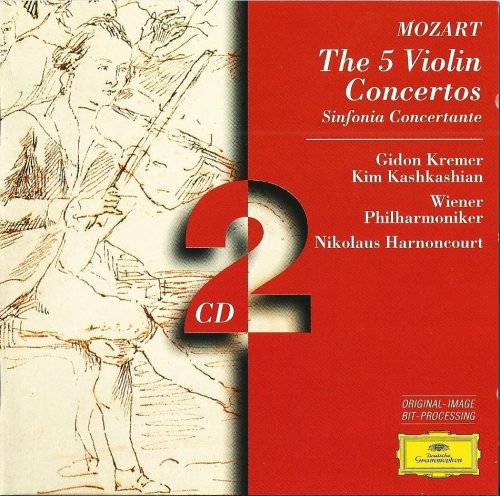
Artist: Gidon Kremer
Title: Mozart: The 5 Violin Concertos
Year Of Release: 1996
Label: Deutsche Grammophon
Genre: Classical
Quality: FLAC (image+.cue,log,scans)
Total Time: 02:29:13
Total Size: 781 Mb
WebSite: Album Preview
Tracklist: Title: Mozart: The 5 Violin Concertos
Year Of Release: 1996
Label: Deutsche Grammophon
Genre: Classical
Quality: FLAC (image+.cue,log,scans)
Total Time: 02:29:13
Total Size: 781 Mb
WebSite: Album Preview
CD 1:
01. Sinfonia concertante in E flat major, K. 364 (K. 320d): I. Allegro maestoso [0:13:59.00]
02. Sinfonia concertante in E flat major, K. 364 (K. 320d): II. Andante [0:11:06.00]
03. Sinfonia concertante in E flat major, K. 364 (K. 320d): III. Presto [0:06:40.00]
04. Violin Concerto No. 1 in B flat major, K. 207: I. Allegro moderato [0:07:09.00]
05. Violin Concerto No. 1 in B flat major, K. 207: II. Adagio [0:09:54.00]
06. Violin Concerto No. 1 in B flat major, K. 207: III. Presto [0:06:28.00
07. Violin Concerto No. 2 in D major, K. 211: I. Allegro moderato [0:08:04.00]
08. Violin Concerto No. 2 in D major, K. 211: II. Andante [0:07:05.00]
09. Violin Concerto No. 2 in D major, K. 211: III. Rondeau, Allegro [0:04:30.00]
CD 2:
01. Violin Concerto No. 3 in G major, K. 216: I. Allegro [0:09:23.00]
02. Violin Concerto No. 3 in G major, K. 216: II. Adagio [0:07:59.00]
03. Violin Concerto No. 3 in G major, K. 216: III. Rondeau Allegro [0:06:48.00]
04. Violin Concerto No. 4 in D major, K. 218: I. Allegro [0:08:20.00]
05. Violin Concerto No. 4 in D major, K. 218: II. Andante cantabile [0:06:07.00]
06. Violin Concerto No. 4 in D major, K. 218: III. Rondeau, Andante grazioso [0:07:50.00]
07. Violin Concerto No. 5 in A major ("Turkish") K. 219: I. Allegro aperto [0:09:05.00]
08. Violin Concerto No. 5 in A major ("Turkish") K. 219: II. Adagio [0:09:52.37]
09. Violin Concerto No. 5 in A major ("Turkish") K. 219: III. Rondeau, Tempo di Menuetto [0:08:54.38]
Performers:
Gidon Kremer - violin
Kim Kashkashian - viola
Wiener Philharmoniker
Nikolaus Harnoncourt – conductor
One of the great violinists of our day, Gidon Kremer is someone I always want to hear. I am not so sure about his chamber orchestra however. One might say he leads and they follow. There is punctuality and alertness, and the set is not without moments when you feel everyone is listening to each other and involved in an integrated endeavour. Yet moments they are, unsustained, and the all-purpose vigour predominating in the outer movements, contrasted with a vaguely songful quality in the middle ones, leaves me longing for more subtlety and range. The orchestra is not unkempt but it does not appear to have been cared for, and these lovely pieces would certainly have benefited from more rigorous rehearsal of the detail. Finesse is on the agenda only for the soloist is my impression, and concerted definition of character that depends on detailed phrasing and accentuation from everybody, as well as precisely judged sound, isn’t achieved. Distinguished though Kremer is as a soloist, the lack of it is likely to deter me from returning to his Mozart often.
Go to a comparison with Giuliano Carmignola and the Italian Mozart Orchestra and Abbado and a couple of minutes are enough to make evident what is missing. There, you have colour which “works” as an element of the whole and isn’t just added on; the dynamics too, which are thought about for what they contribute to quality of sound and not just its loudness, and making the flux of continuity so much more interesting. Rarely do the Kremerata Baltica give us a cantabile softness, while in forte they tend to be fierce, as if a strong statement must also be a shout. To be fair, DG Archiv’s top-notch recording is superior to this Nonesuch in most respects, though Kremer himself is nicely reproduced. I hear an audience here and there and wonder whether all of his set derives from concert performances.
Kremer makes you listen – whereas Carmignola and Abbado, coming from a less traditional direction, leave you agape with wonder at their insight and powers of rediscovery. I mustn’t use them as a stick with which to beat the new contender but there really is no contest. Abbado’s first period-instrument recording with his new orchestra and this soloist proclaims a Classical stance and a Classical sound as being what these pieces demand. In everything from the length of short notes to the weight of accents they communicate variety and exactitude. No generalised atmosphere, no treading of water. The grace and spring to their step, and the air from their side of the Alps, are indeed different. So is the sheen to their playing and its unanimity of purpose. Their set includes the great Sinfonia concertante for violin and viola, by the way, and they really do raise the bar a bit.
Go to a comparison with Giuliano Carmignola and the Italian Mozart Orchestra and Abbado and a couple of minutes are enough to make evident what is missing. There, you have colour which “works” as an element of the whole and isn’t just added on; the dynamics too, which are thought about for what they contribute to quality of sound and not just its loudness, and making the flux of continuity so much more interesting. Rarely do the Kremerata Baltica give us a cantabile softness, while in forte they tend to be fierce, as if a strong statement must also be a shout. To be fair, DG Archiv’s top-notch recording is superior to this Nonesuch in most respects, though Kremer himself is nicely reproduced. I hear an audience here and there and wonder whether all of his set derives from concert performances.
Kremer makes you listen – whereas Carmignola and Abbado, coming from a less traditional direction, leave you agape with wonder at their insight and powers of rediscovery. I mustn’t use them as a stick with which to beat the new contender but there really is no contest. Abbado’s first period-instrument recording with his new orchestra and this soloist proclaims a Classical stance and a Classical sound as being what these pieces demand. In everything from the length of short notes to the weight of accents they communicate variety and exactitude. No generalised atmosphere, no treading of water. The grace and spring to their step, and the air from their side of the Alps, are indeed different. So is the sheen to their playing and its unanimity of purpose. Their set includes the great Sinfonia concertante for violin and viola, by the way, and they really do raise the bar a bit.
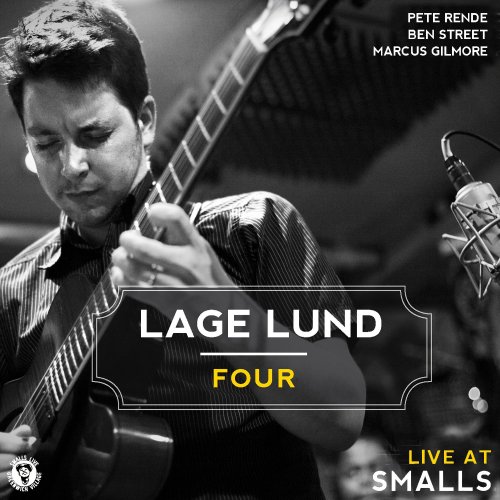

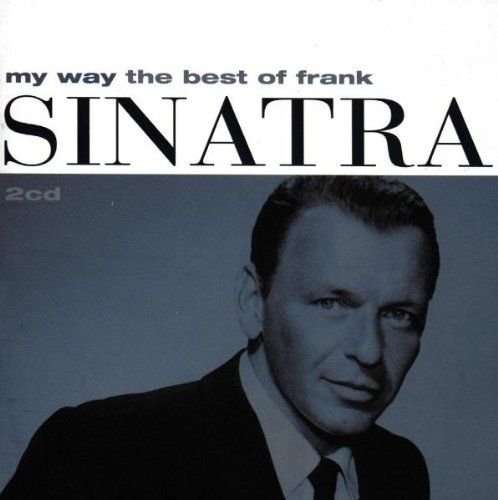
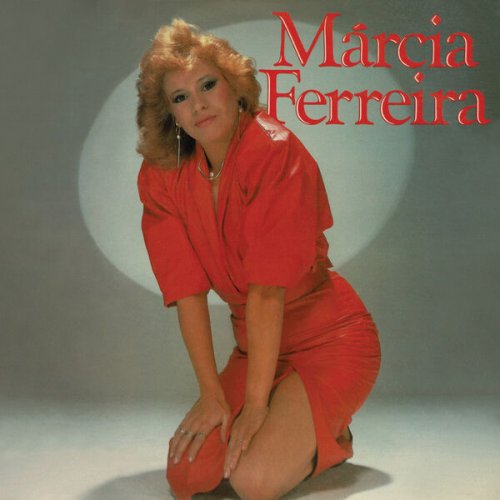
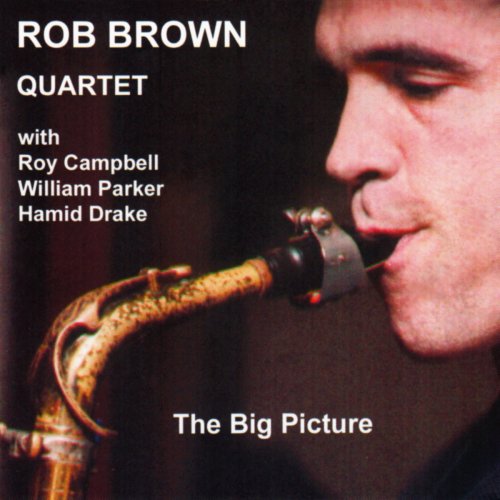
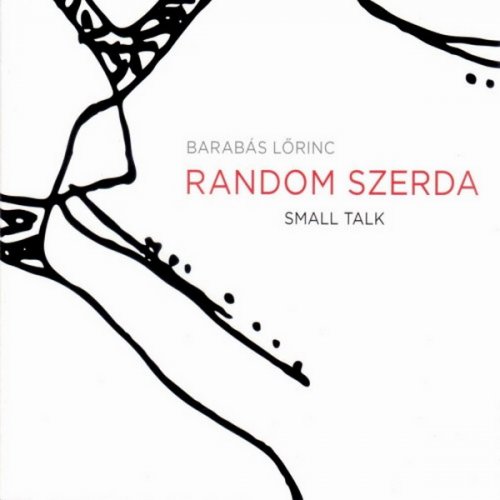
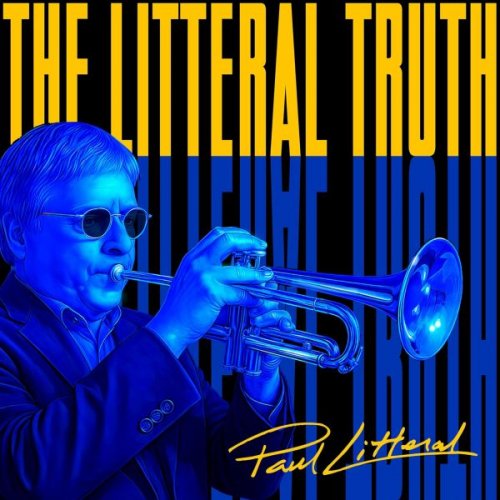
![The Mood Mosaic - Soul Seduction (2025) [Hi-Res] The Mood Mosaic - Soul Seduction (2025) [Hi-Res]](https://www.dibpic.com/uploads/posts/2025-12/1766135288_d5rmbmuwqtmya_600.jpg)
![Milton Man Gogh - Fully Stretched (2025) [Hi-Res] Milton Man Gogh - Fully Stretched (2025) [Hi-Res]](https://www.dibpic.com/uploads/posts/2025-12/1766080588_cover.jpg)